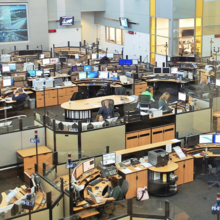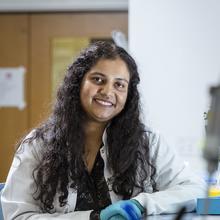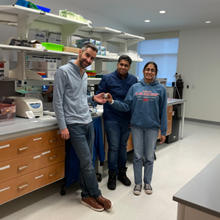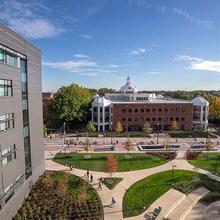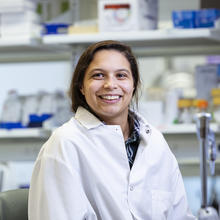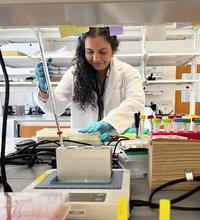- January 29, 2025
George Mason University researchers are using a $1.6 million grant to create DELTA-FORCE for the U.S. Army, improving the performance of military vehicles.
- November 25, 2024
George Mason University is using $1 million from the National Institute of Standards and Technology to enhance emergency response, specifically using artificial intelligence (AI) to improve training and other capabilities of the emergency communication systems in Northern Virginia.
- March 13, 2024
During her time at Mason, Mason alumna Shrishti Singh has used all the tools the university provides to bring her discovery to the marketplace.
- January 25, 2024
A Mason team including a high school student, a postdoctoral scholar, and a mechanical engineering professor has developed a way to use spent coffee grounds to remove diverse contaminants from water.
- January 23, 2024
Mason scientists and partners will leverage their climate expertise and the university’s resources into broader societal implications, thanks to a $6 million grant from the National Science Foundation (NSF).
- January 9, 2024
Mason researcher Marissa Howard leads a team of scientists who have discovered a way to “eavesdrop” on cellular communications that could revolutionize treatments for cancer and other maladies.
- April 11, 2023
Mason researchers are making inroads in an important element of health diagnosis and treatment, and with funding from the Virginia Innovation Partnership Corporation (VIPC) Commonwealth Commercialization Fund, are seeking to launch a startup to commercialize their developments.
- November 30, 2021
With the support of a grant from the U.S. Department of Health and Human Services, Mason researchers Vivian Motti and Anya Evmenova have developed a smartwatch application that will help improve the daily lives of young adults with intellectual and developmental disabilities.
- November 16, 2021
Using virtual reality (VR) and artificial intelligence (AI), a team of researchers at George Mason University is taking a wrecking ball to barriers faced by neurodiverse individuals in construction.
- November 11, 2021
The National Science Foundation (NSF)’s I-Corps program is an accelerator that helps entrepreneurs and researchers work together “to bring invention to impact.” Mason serves as an official I-Corps site, supporting local grantees through the exploratory stages of venture-building, as well as preparing them to apply for the national-level program.


